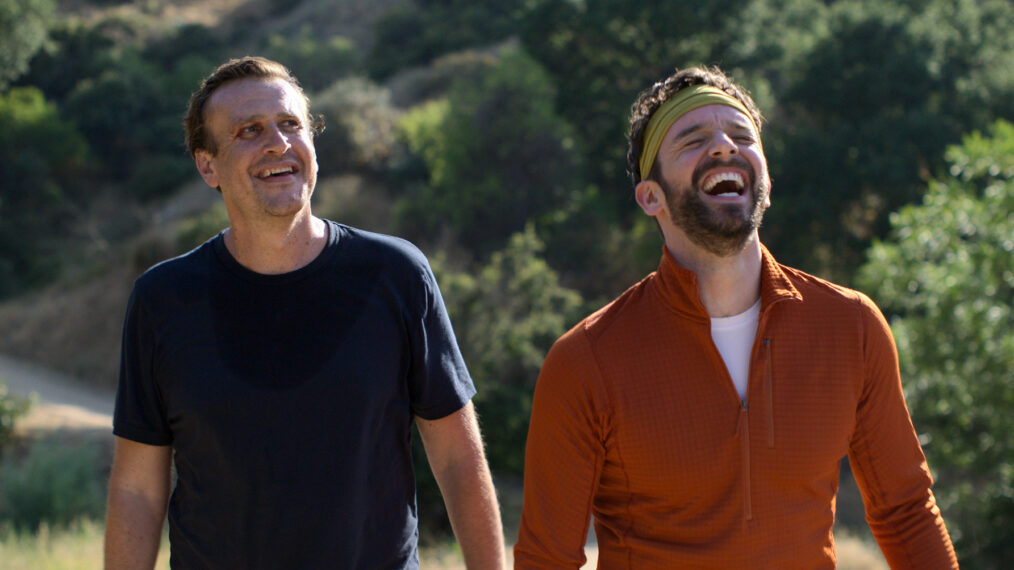[Warning: The following contains MAJOR spoilers for Shrinking Season 1.]
Shrinking is all about navigating the complicated interpersonal dynamics of a grieving family, both biological and chosen. Starring Jason Segel as Jimmy Laird, a widowed therapist who tries out some borderline unethical new therapy techniques with his patients, the Apple TV+ comedy is the latest feel-good show from Bill Lawrence and Brett Goldstein, two of the creators of Ted Lasso.
Segel wrote the series alongside his fellow co-creators, and they brought together TV’s most unexpected, but one of its most delightful, new ensembles of the year. With Harrison Ford as the begrudgingly emotive therapy mentor Paul, Jessica Williams as co-worker and old friend (and eventually something more) Gaby, and Christa Miller as the rock-tumbling nosey neighbor Liz, there’s no shortage of laughs.
Also part of this ensemble is Michael Urie as Brian, the best friend Jimmy ghosted after his wife’s sudden death. Brian’s determination to look on the bright side — and his belief that “everything goes [his] way,” is too much for the bereft Jimmy to take. But the two friends come back together in a healing way in Season 1, culminating in Jimmy officiating Brian’s wedding to Charlie (Devin Kawaoka) in the season finale, streaming now.
Shrinking will be back for more on Apple TV+. Here, Urie reminisces on his beloved character with TV Insider, sharing what the role has done for him, plus what he thought of that literal cliffhanger ending featuring Heidi Gardner‘s Grace and her husband who had it coming (watch the finale and you’ll know what we mean…).
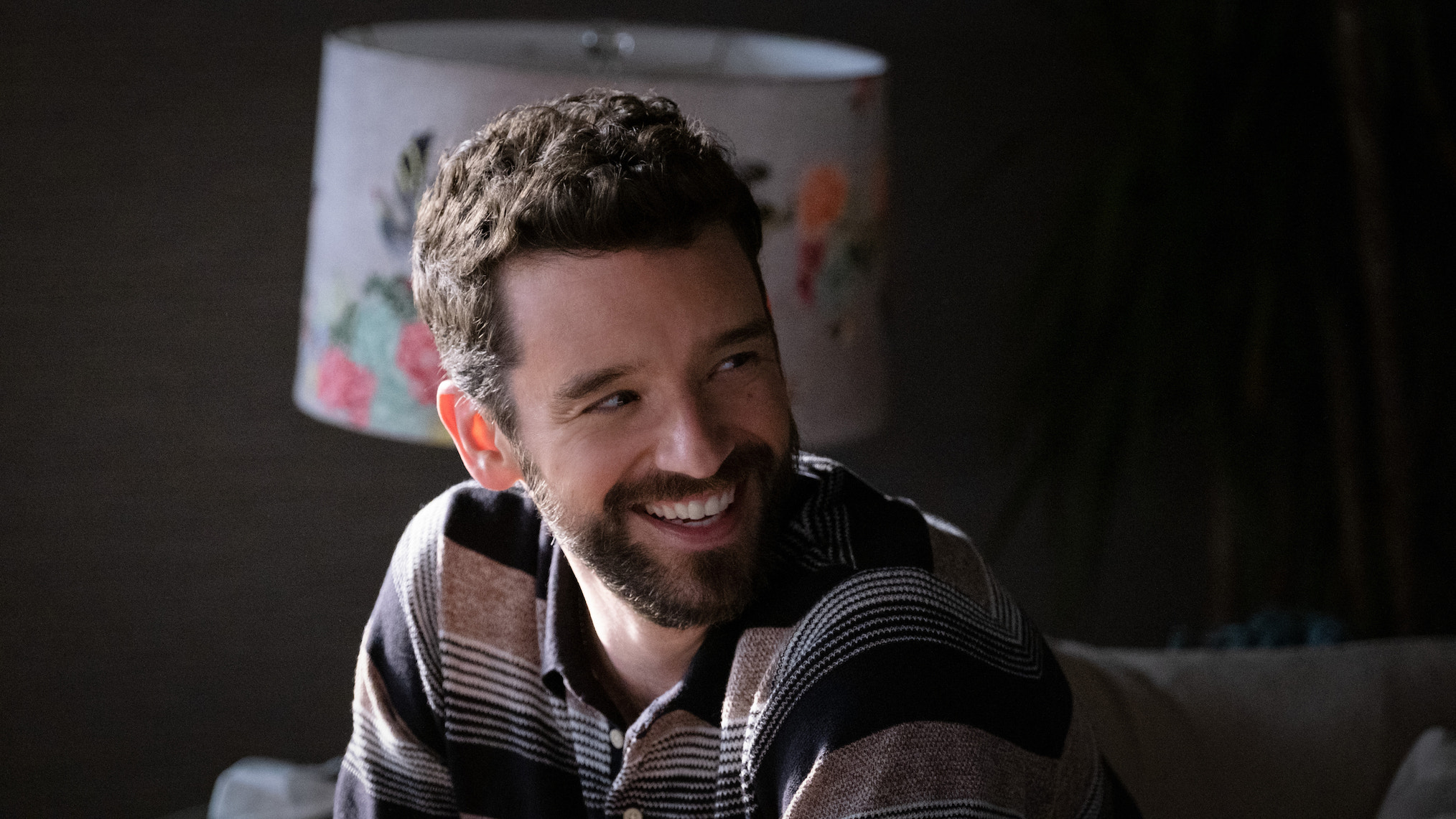
Apple TV+
Shrinking is such a fun show.
Michael Urie: Oh, thank you so much. Yeah, it was so nice. I just had therapy this morning…
I did too, actually.
Oh my God, really?
Yeah! I usually have it on Fridays, but my therapist switched it to Wednesday this week.
So, are you on the West Coast?
I’m in New York.
Oh, OK. I live in New York, but I’m on the West Coast right now, so it’s a little early for me for therapy. [Laughs] But I’m finding great satisfaction in mental health professionals who are watching the show and who are liking the show. It’s therapists-approved. My therapist is really liking the show, although I don’t think she’s gotten quite to the end. She always wants to talk about how unethical Jason’s character is. [Laughs]
It kind of works eventually. At first it’s questionable, and then it really helps people. And then, of course, it encourages some too much in the very last moment of the season — a literal cliffhanger.
Crazy. I don’t know what happens in Season 2, but I’m sure there’ll be consequences, you know? Whenever I see somebody on social media, or I hear somebody be like, “He shouldn’t be doing that!” I’m like, “Well, it’s television! [There’s] gonna be consequences.” It’s conflict. I like to break things and put them back together and then break them again. That’s kind of how it all works.
I find Brian to be very endearing. What do you love about him?
I love the way that Brian leads with positivity. It’s just a nice place to go as an actor. Obviously, we see over the course of the season that there’s more to him than that. I feel lucky to be playing this character, because when I first read this, the first episode I’m not really in, and then the second episode, I have all that great stuff. I hadn’t really read the second episode when I auditioned. I had a feeling it was gonna go to wonderful, deep places because I know these writers and I know their work and I know nothing’s frivolous.
So I knew that eventually there would be some exciting things that happened to Brian, and you would get to know him on a deeper level beyond “everything goes my way.” I trusted that, and I knew that that would happen, but as an actor and as a human being, you kind of wear the character as long as you’re playing a character. You’re kind of like taking them around with you. And he’s a great guy to have around. It’s a really fun person to be. That sort of sunny disposition is great. When you start work on a new TV show and there’s like 100 people on a crew and you’re like, “I’m this guy,” it’s really fun. More people I know watch this show more than anything else I’ve ever been a part of.
Really? That’s not surprising, because it is such a good show, but like, Ugly Betty, you know?
Yeah! People watch that, too, for sure. But I don’t know, [Shrinking] sort of spans age demographics in a way that maybe that show didn’t. Maybe I’m older now, and also that was a different time and everyone had ABC. I don’t know, there’s something about the streaming nature of it. Maybe I’m just projecting what I think, but a lot of people that I know that know me really well, or that know me even peripherally, they think this is the closest character to me I’ve ever played, which is fun. They’re like, “It’s like watching you!” and they’re like, “You’re not even acting!” It’s great. He’s a nice skin to wear.
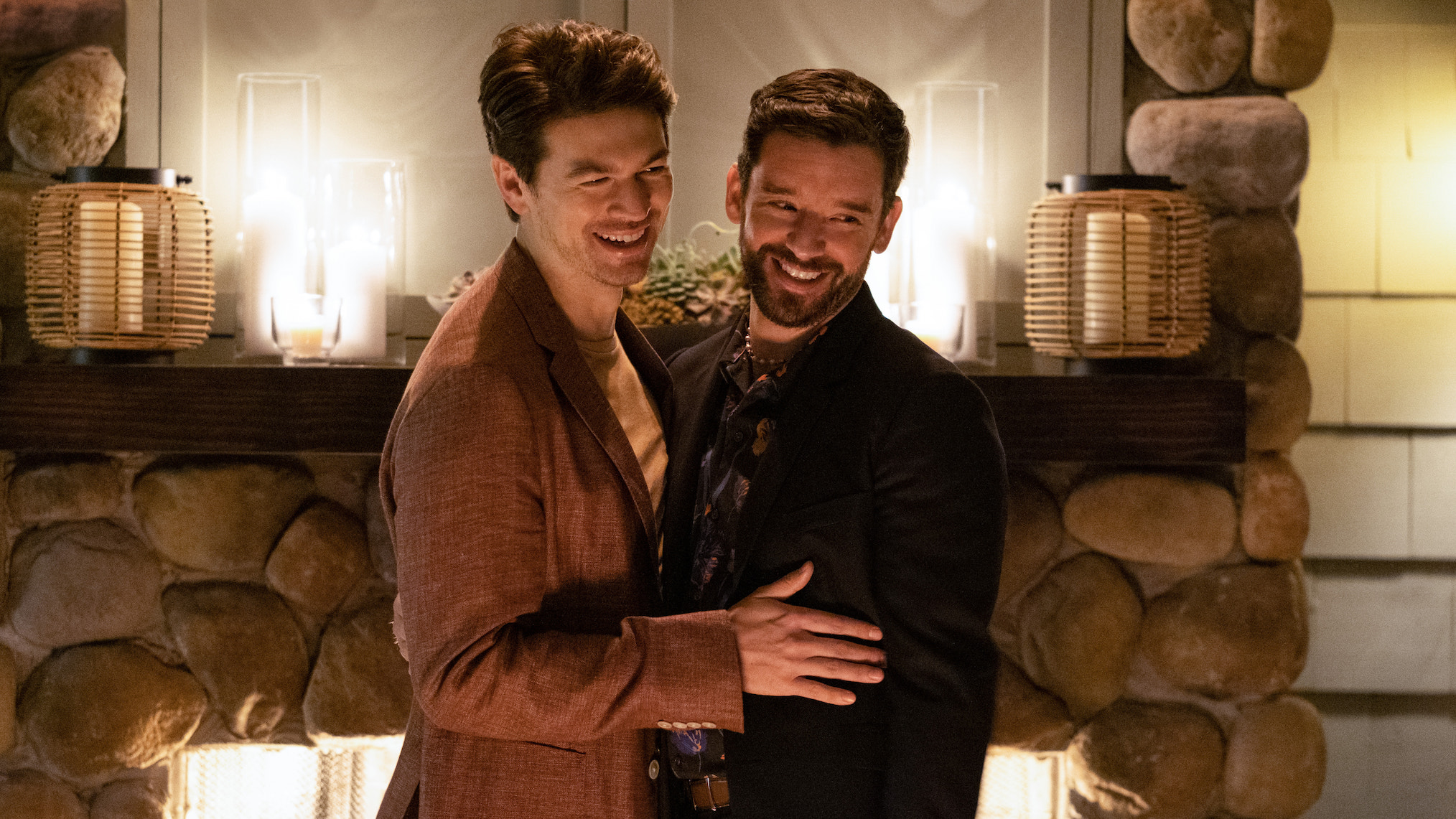
Apple TV+
Do you see any of yourself in him?
Yeah, I definitely do. I’m the kind of person who dives into conflict. I don’t like conflict, but if there is conflict, I have to get past it, with my close friendships especially, but even my work relationships. If there’s a problem, I can’t really function until it’s solved. I don’t know that I would ever burst into someone else’s therapy session like Brian does in Episode 2. [Laughs] But if I’m gonna fight with somebody, I can’t really do anything until that fight is resolved and I’ve either properly apologized or properly been apologized to. We gotta get back on the same page. We’ve gotta clear the air, mend the fences. And I think Brian does that, too, maybe to a fault.
That’s something that this show really taught me in terms of where we meet Brian at the beginning of the show. Jimmy has ghosted him, and it’s about Brian, but it’s really more about Jimmy and how Jimmy needed Brian out of his life in order to do what Jimmy needed to do. I think that’s a real thing in people’s lives. I think that happens a lot, and I guess I do it too. There’s just periods of my life where certain people don’t help, and it’s not their fault. It’s through no fault of their own, but sometimes you just need to change your setting, to change your community, even if it’s just temporary.
I find that, especially like the older I get, the more I just need to get out of town or I gotta hang out with somebody new for a little while. Routine change, I think, is healthy, and I think Brian’s taking it very personally that Jimmy doesn’t want anything to do with him, but I don’t think it is so personal. I think it’s in part because of who Brian is, but it’s mostly because of what Jimmy needs.
Totally. As my therapist would describe it, they’re not in alignment with each other, and so they need to take space until they’re both at a place where they can each come to the relationship and it’ll be good for both of them.
Oh, that’s great.
From my perspective as a viewer, that’s the whole experience of this season. These people are navigating deeply personal things, but they’re also still figuring out how to come to their relationships mindfully and with care. And it’s not just about how you feel about the person, but also how they need to be cared for, you know? You see that especially with Jimmy and Alice [Lukita Maxwell].
I love that take. I feel like every scene is like, who’s on the couch in this scene? Every time I have a scene, I’m like, “Am I on the couch, or am I the therapist in this scene? Is Harrison on the couch in the scene?” And we always switch. In a really wonderful, sweet way, even the characters that aren’t therapists or mental health professionals fill that counselor-counseled thing going on. I think part of why people love it so much is everyone’s really trying in this show. All the characters are really doing their best, really trying to help each other, trying to be better for each other, and trying to love each other. It’s a nice place to go.
The engagement party takes a completely nonsensically hilarious turn into physical comedy in Episode 6. You’re stuck between the vomiting Jason Segel and the “stoned” Harrison Ford. Tell me what filming that was like.
It was so fun. It took a long time, that scene, because there’s so much. It’s such a long sequence in the show, not just the vomiting scene, [but] that whole party scene. And it was such a blast to do, because you get to do a big comedy stunt, special effects, all that stuff, plus you get to play off of a stoned Harrison.
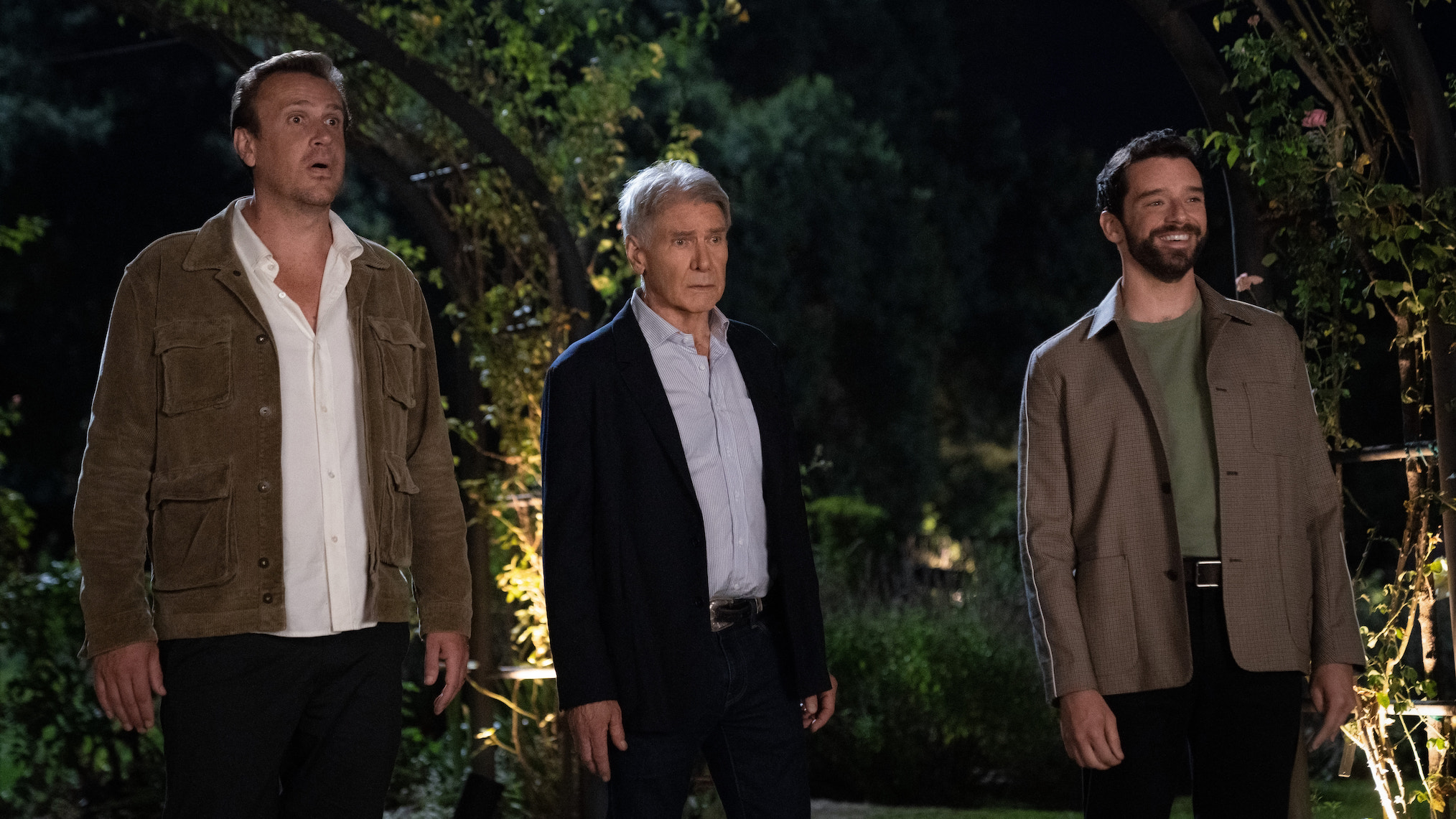
Apple TV+
I have to say, when I saw it back, I was so blown away. First of all, Randall Winston, who directed that episode, did such a good job piecing it all together — the flashbacks, the comedy, the pathos. But Jason drunk in that episode and Harrison stoned in that episode, maybe I’m being biased, but I can’t think of better examples of that kind of sad drunk person and that kind of person not used to being stoned. [Laughs] And they were so real! I was there; they weren’t drunk and high. They were not actually doing it. They were acting. I knew the episode would be funny, and then I knew episode would be sweet and I’d have a lot to do, but I didn’t realize those two guys were putting in such tour de force performances. They were so well captured.
The only other sad/drunk hilarity that measures up, to me, is Jason in Forgetting Sarah Marshall. He has a monopoly on those scenes, I guess.
Yeah! [Laughs]
As a queer person myself, I see a lot of value in portraying Brian’s marriage to Charlie as the normal thing that it is and showing a parent-queer child dynamic struggle that isn’t about sexuality and gender identity at all. I’d love to know how it felt to play this character whose sexuality is such a non-issue.
Well, I love that. I love that the queerness is one aspect of a very multifaceted character. I think that’s very, very exciting, and I’m very proud of that. And I was also very proud that we found our way through that conflict, my character’s father and me. [The writers] sort of preempted it.
They’re really great, these writers, about checking with you when things are personal. They’re like, “We wanna make sure we handle this right.” So when the idea of my parents was introduced in an earlier episode, they were like, “This is where we’re going with this, and this is what we’re thinking, and this is what we like. Are you good with all this?” And I weighed in a few times just to say, “I kind of feel like I’ve seen this before, but I haven’t seen this before.”
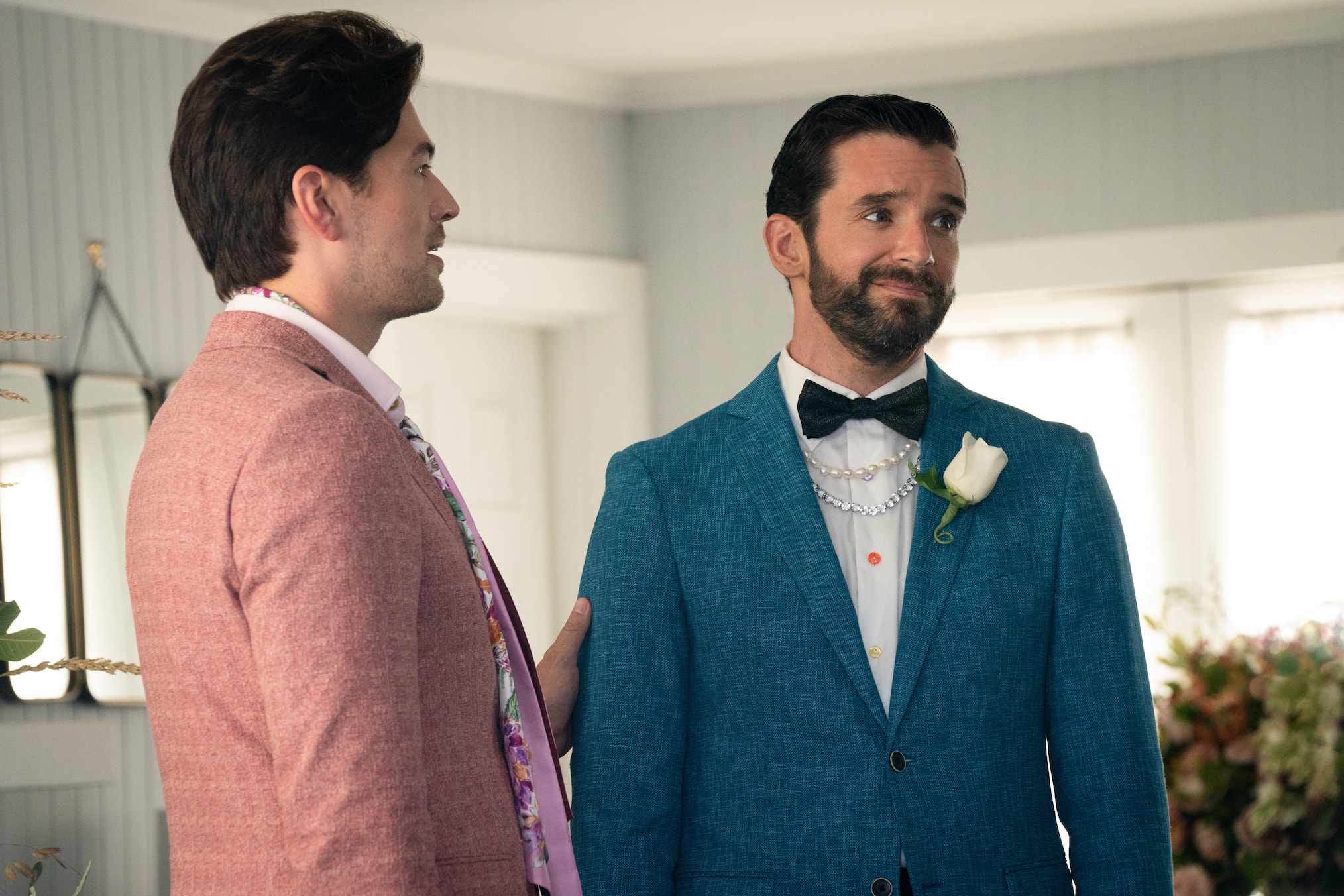
Apple TV+
I have a lot of really close straight, male friends, and so something I’m really proud of with this show is showing that relationship between a gay man and a straight man. You’ve seen gay men friends with gay men. You’ve seen gay men friends with women. You don’t see a lot of male-male relationships when one person is queer and the other is not. And that’s a real thing. And it doesn’t just mean that the gay guy is butch and likes sports. Sometimes they’re different, but they’re still best friends and they’re still really, really close.
I love that aspect of the show in general, and then I love that Jimmy kind of comes to Brian’s rescue a little bit with Sean [Luke Tennie] when they tell my dad, “You’re gonna do this, you’re gonna pony up. It’s worth it. You’re gonna regret not doing it,” and then that dad comes around and we get to have this big, queer wedding with a cowboy best man.
They wrote that my character’s from Texas because I’m from Texas. My family isn’t like that, although I’m very proud of where that character ends up in the end, but it was never anything like that with my family. But I’m so proud that we’re showing that, and I’ve already heard from people who it’s meant a lot to. And it’s a new take. As queer people, we’re seeing ourselves ever evolving on TV. And I’m proud that this is a different step and a different place, and we’re helping show people the way the world could be and the way the world is.
Shrinking, Season 1, Streaming Now, Apple TV+

